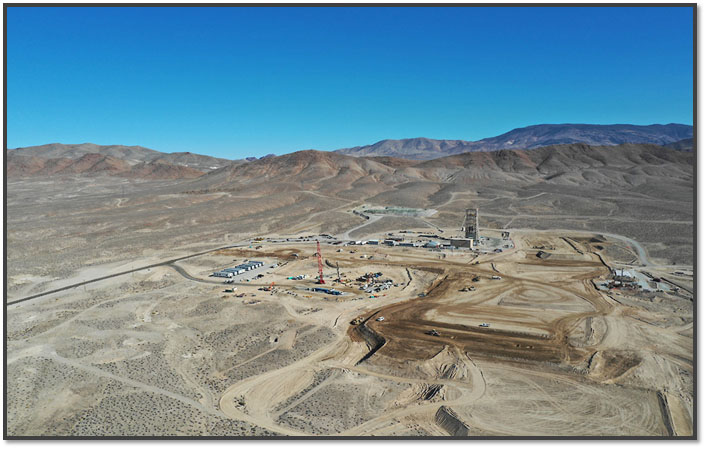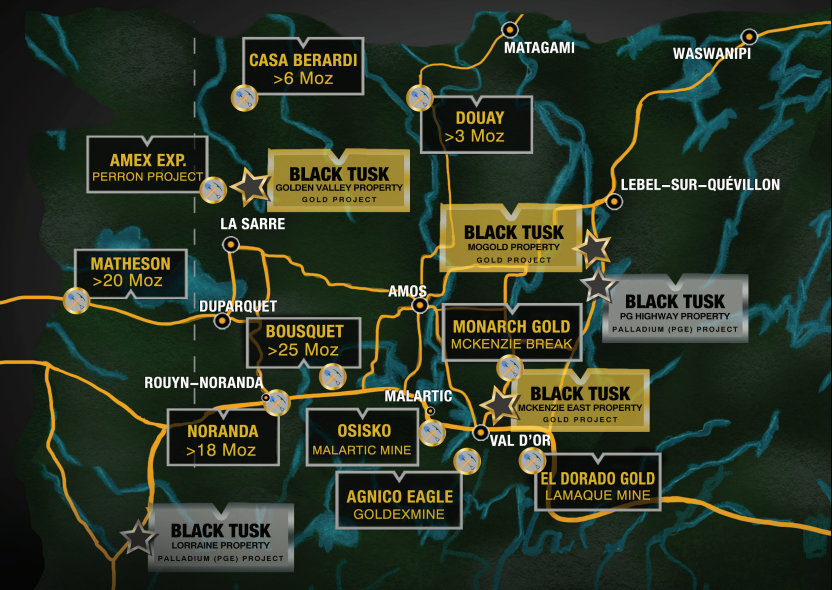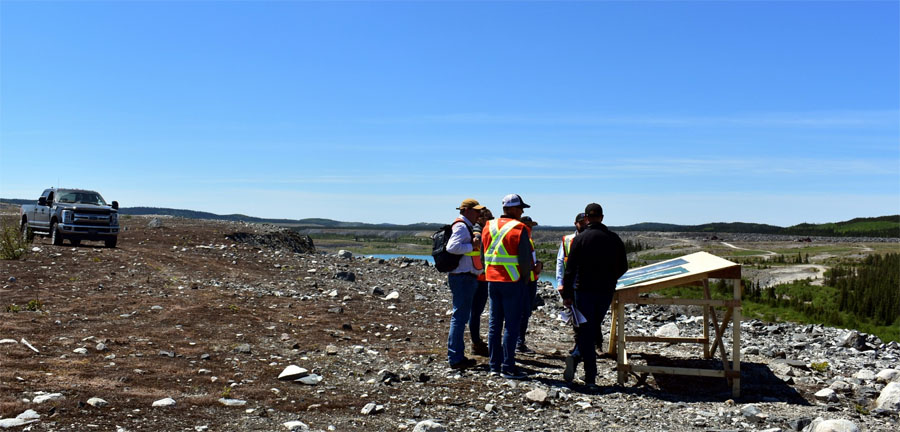The Critical Metals Report: James, in your last interview with The Critical Metals Report in February, you believed that there would be a large number of mergers and acquisitions (M&A) this year. We have seen some activity, but nothing unprecedented. Is that investment thesis still intact?
James Passin: The European sovereign fiscal crisis, which has raised questions about the liquidity and solvency of some of the largest banks in the world, has delayed any merger wave. The availability of credit to fund corporate acquisitions is certainly tighter than it would be otherwise, and this has led to a level of defensiveness by cash-generating mining companies. However, at the end of the day, interest rates are low, there is credit available for the larger companies and equity valuations are cheap.
TCMR: Which commodities sectors show the most M&A potential?
"It's very clear that a long-term secular bull market started in Mongolia in 2006. I believe that this bull market will last for decades."
JP: There should continue to be a lot of M&A among mid- and small-cap oil companies. There have been some coal mergers that didn't really work from a capital markets perspective, and weakness in coal prices has slowed everything down, but the coal M&A story should eventually rebound. Consolidation will continue in the more obscure commodities as well.
TCMR: Firebird manages a portfolio of private equity funds that invest in Mongolia. How is the Mongolian government handling the country's growth?
JP: Regardless of any political theatrics, my expectation is that the Mongolian government will continue to create and implement policies that support growth and long-term stability in the country. It is critical that Mongolia continues to build the physical infrastructure, financial institutions, human resources and legal framework necessary to unlock the almost unfathomable immensity of its full economic potential. We think the relative political merits of Mongolia compared to other resource-rich frontier markets will become even clearer over time.
TCMR: Some investors will get skittish when they hear the words "investing" and "Mongolia" in the same sentence. How would you assuage their concerns?
JP: Frankly, it's hard for me to fathom why somebody would not want to make investments in Mongolia. The biggest risk, in my view, is to miss out on the great bull markets, where real wealth is generated. It's very clear that a long-term secular bull market started in Mongolia in 2006. I believe that this bull market will last for decades.
Compared to many other frontier markets, the political risk in Mongolia is less extreme. Mongolia has an ethnically cohesive society and a strong democratic political institution. Mongolia's young population is hungry for growth and entrepreneurial opportunities; the nation's vast untapped natural resources serve as a means to those ends.
At the height of the Mongolian Empire's historical power, Mongolia effectively dominated the entire world economy. In my view, it is irrational not to risk at least some capital in the new, emerging Mongolia—the world's fastest-growing economy.
TCMR: Firebird started in 1994 by investing in publicly traded companies in Russia. It later followed a similar strategy in the Baltic states. How did those experiences shape your current investing strategy in Mongolia?
"New technology increases the likelihood of success, decreases cost and results in higher returns. The application of technology will continue to have a transformative effect on Mongolia."
JP: My partners started investing in Russia right after privatization. That strategy proved to be brilliant in that environment: They would get in early and acquire shares while capital markets were still in a state of chaos. Anyone who was able to get exposure early and hold it made fortunes. The key was to get in before there was enough transparency to enable high-quality research from brokers, pipelines of investment banking products and all of the sell-side information that's available in developed markets. When that is absent, it creates the opportunity for those willing to risk capital to get cheap exposure to securities. Eventually, as the transparency increases, research increases and the ability of investors to properly value securities increases. That results in increased liquidity and M&A from international companies, while international listings create exits for early investors.
TCMR: What role is technology playing in creating investment opportunities there?
JP: We find that automating more processes results in huge increases in efficiency and reduces waste. New technology in mineral exploration increases the likelihood of success, decreases cost and results in a higher return on invested capital. The application of technology will continue to have a transformative effect on Mongolia.
TCMR: Russia, the Baltic states, Mongolia—what's next?
JP: North Korea. It's no secret that Firebird Global II, which is one of the funds I manage, has investments there. North Korea is a very interesting country with a much larger population than Mongolia. It has huge known, but undeveloped, mineral deposits. It has a strategic location with deepwater ports and sophisticated manufacturing and technology emanating out of the military-industrial complex. The nation has the potential to be an economic tiger.
TCMR: What are some off-the-radar commodities where you continue to see investment opportunity?
JP: Beryllium is a metal that many governments deem "strategic." It is used in military aviation, has outstanding thermal properties and is also very lightweight and strong. It's also used as a copper alloy for pipes in deep gas exploration. It's transparent to x-ray radiation and reflects neutron radiation, which makes it very useful in various nuclear and space applications.
"Beryllium is going to play a critical role in enabling the movement of industrial activity beyond the earth's surface."
I have a very long-term, constructive view on space exploration, militarization and commercialization. Beryllium is going to play a critical role in enabling the movement of industrial activity beyond the surface of the earth. Some new energy platforms, like space-based batteries that convert solar energy into microwave radiation, will likely use beryllium as one of the component atoms in a matrix metal used as an absorbing medium. This might sound like science fiction, but once new energy technology becomes commercialized, it will proliferate quickly.
I would mention one company, IBC Advanced Alloys Corp. (IB:TSX.V; AALF:OTCQX), which was co-founded by Firebird Global Fund. It has acquired some various beryllium manufacturing and processing distribution companies, as well as some highly prospective beryllium exploration properties. It's building a vertically integrated beryllium business. The company has a low valuation in light of its revenues, cash-flow streams and near-term growth prospects. I believe that there is multi-decade upside for the company.
TCMR: IBC has a proprietary Beralcast technology, which combines beryllium and aluminum into an alloy. Is there any competition for that technology?
JP: Materion Corp. (MTRN:NYSE) has a product called AlBeMet. There are other alloys without beryllium that could be used in various applications. It is very difficult to find other composite metals that have the same performance characteristics as beryllium-aluminum composite metals, especially in military aviation. IBC's Beralcast, unlike AlBeMet, is castable, so it opens up the possibility of lower-cost applications in commercial aviation. That represents a massive growth opportunity. Furthermore, if IBC is able to make a discovery at its Spor Mountain extension property in Utah, it could build its own processing facility.
TCMR: At what stage is that property now?
JP: It's still in the early stages of exploration, but it is quite prospective. It completely surrounds Materion's Spor Mountain, which is the source of 60% of the world's beryllium. As a shareholder, our hope is that the property controlled by IBC contains an extension of the Spor Mountain property that is potentially even larger. There needs to be more exploration before we have any sense about its commerciality as a beryllium deposit.
TCMR: What other critical elements do your funds have exposure to?
JP: We have some exposure to fluorspar, which is needed to make hydrofluoric acid for processing uranium, making aluminum and other metallurgical processes. It's the ultimate source for hydrofluoric carbons, which are used as a refrigerant. It's ultimately an exciting play on refrigeration and air conditioning demand in China, which drives fluorspar production.
There are a lot of interesting opportunities outside of China, such as one of our Mongolian holdings, Berkh Uul JSE (BEU:MSE). It controls a formerly producing beryllium mine in the Delgerkhaan, a Mongolian fluorspar deposit. We're in the process of studying it and completing some exploration. We're looking at potentially getting the mine back into production.
TCMR: You get involved in these companies in a big way—this isn't just a 3–4% stake.
"Don't lose faith in ideas that are clear, but don't get captured into chasing ideas that are popular. Critical commodities will remain an important investment story."
JP: One of our core strategies is to take the largest possible stake in underperforming and severely undervalued companies. In particular, we will improve a company's affairs through activism and bringing in new management, ultimately enabling an exit for our funds.
TCMR: One could argue that there's less risk if you're effectively controlling the decisions that the company is making.
JP: Obviously, the key is to develop the backbone and professional expertise to support the decision-making process. I don't want to gamble that a stock is going to go up or down in the short term. I take a long-term strategic stake in a company and look for situations where there is a clear potential to consolidate fragmented industries and create the circumstances under which we can enable a revaluation and exit over time.
TCMR: Do you have some final thoughts for us?
JP: It's very important to take a long-term view and to get positions ahead of everyone. Don't lose faith in ideas that are clear, but don't get captured into chasing ideas that are popular. Critical commodity stories, especially commodities essential to new technological innovations, will remain an important investment story for the foreseeable future. There could be huge fluctuations in commodity and stock prices in the short term, so the key is being able to survive until the positions reach their true value.
TCMR: That is sound advice. Thanks.
James Passin joined Firebird in 1999. He co-founded and manages Firebird Global Fund, Firebird Global Fund II, Firebird Mongolia Fund and Firebird New Mongolia Fund. Passin is a graduate of St. John's College, where he majored in philosophy and classical literature. He serves on the board of directors of several Mongolian and Canadian companies, including Sharyn Gol JSC, Baganuur JSC, BDSec JSC, National Investment Bank of Mongolia and Undur Tolgoi Minerals Inc. Passin is also the chairman and CEO of Vanoil Energy, Ltd., a Canadian oil exploration company focused on Kenya and Rwanda, and the non-executive chairman of Fluormin Plc, a U.K. company listed on the London Stock Exchange's Alternative Investment Market. Passin was named "Fund Manager of the Year" at the 2012 Mines and Money Conference in Hong Kong.
Want to read more exclusive Critical Metals Report articles like this? Sign up for our free e-newsletter, and you'll learn when new articles have been published. To see a list of recent interviews with industry analysts and commentators and learn more about critical metals companies, visit our Critical Metals Report page.
DISCLOSURE:
1) Brian Sylvester of The Critical Metals Report conducted this interview. He personally and/or his family own shares of the following companies mentioned in this interview: None.
2) The following companies mentioned in the interview are sponsors of The Critical Metals Report: IBC Advanced Alloys Corp. Streetwise Reports does not accept stock in exchange for services. Interviews are edited for clarity.
3) James Passin: I personally and/or my family and/or funds that I manage have a beneficial interest in the following companies mentioned in this interview: IBC Advanced Alloys Corp. and Berkh Uul JSE. I personally and/or my family was not paid by any company mentioned in this interview. I was not paid by Streetwise Reports for participating in this interview.




























































